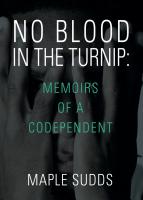 The year was 1993 and from my life experiences to date, I felt that I had been through the fire and came out pure gold. I knew what life was all about and decided to become a part-time drug counselor.
The year was 1993 and from my life experiences to date, I felt that I had been through the fire and came out pure gold. I knew what life was all about and decided to become a part-time drug counselor.
In the classroom everyone had their own personal stories of addictions. I felt that I was the only “normal” one there. I had never been drunk, done drugs, smoked, gambled nor shoplifted. I thought drug counseling was my calling and I felt an air of self-righteousness, because I wasn’t like “those” people. I did not have a disorder, because, my life had been centered on my family, church and being a “good” Christian.
I wanted to become a drug counselor to help people. I was asked if I had any problem with addiction. “No, but I know how devastating it can be, because my husband made my life a pure hell!” Oh Lord! Please don’t let me start crying.
I shared my story. Had I ever attended an Al-Anon meeting? “I don’t need no Al-Anon program! My life is fine now, ‘cause that’s all in the past.”
The facilitator suggested Al-Anon because I seemed to be carrying some emotional baggage. “Emotional baggage!?” He stated that while I was telling my life experiences that I had a dazed look and was crying. “Well, if you’ve been through what I’ve been through, you would cry too!”
He suggested that before I can help anyone that I need to be in a recovery program myself. One of the students said that I was an enabler. “How did I enable them? I was doing my part as a wife and mother. I did everything that I could possibly do to help them and get them to do what was right but nothing worked.”
I was getting confused because I knew I did not have a problem. They just want to dump on me because I’m not like them. One student stated that I have codependent characteristics? I was defensive and refused to read an assigned book, Codependent No More and it went onto a shelf to collect dust.
Fast-forward to 2003. I had been writing and rewriting my life story. I attended church every Sunday and this one Sunday I was crying and asking them to pray for my oldest son and puzzled why both my sons went in and out of jail like a revolving door. Friends said “It’s not your fault and they are just like their father.”
I remembered the book the facilitator had suggested and took it off the shelf. This was a reality check. I took my children to church every Sunday but what were they witnessing at home? I have learned so much and share it in my book. No Blood in the Turnip, Memoirs of a Codependent, took me 20 years to write and saved my life. Perhaps my life experiences were no mistake; it was just my path.




